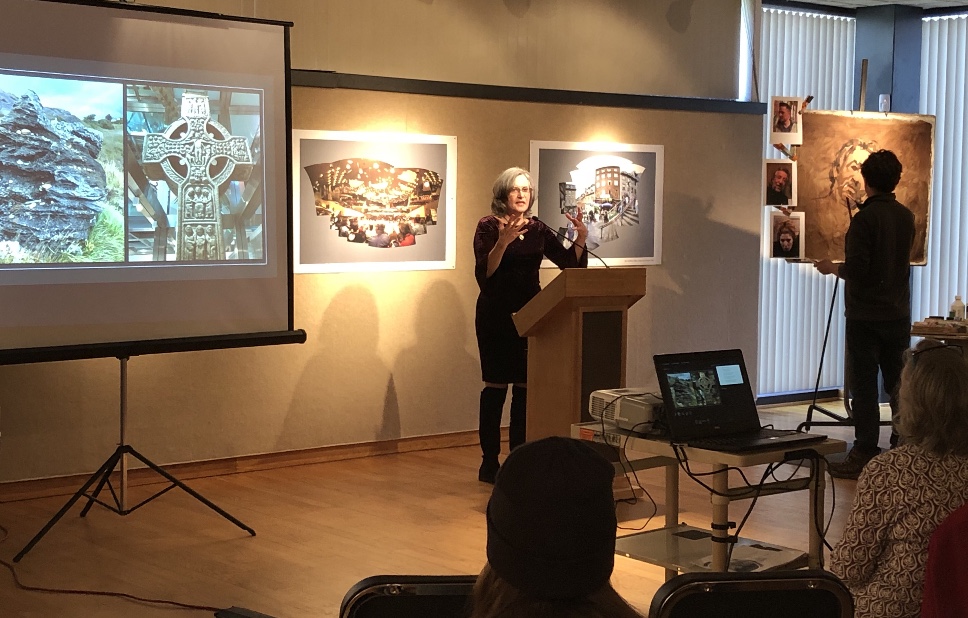
October 23, 2019
How might poets and painters explore and reinterpret the complexities of identity/-ies? These days, not only are borders in flux, but the often-fraught term “identity” is nearly always complicated by multiplicity and intersectionality. We define ourselves partly by inheritance and partly by choice, often while standing at those often foggy bog-borders of ethnicity, geography, gender, religion, or any of a number of other foci of identification. We need the arts to help us navigate our way toward and across the borders of our lives in hopes of approaching self-understanding and, eventually, mutual understanding. Audre Lorde said it best at Harvard in 1982: “I learned that if I didn’t define myself for myself, I would be crunched into other people’s fantasies for me and eaten alive.” At the very least, the arts help us ask the questions and meet the people we need to encounter to discover where and to what extent we can really see at all.
These boglands of identity are deep and sometimes treacherous. I would never want to idolize, demonize, patronize, tokenize, or any other -ize anyone. At the same time, we can’t pretend our differences wholly define us any more than we can pretend they don’t exist. Ultimately, I want to see and to bear witness to how I see, just as I want to hear and read and watch how others see. In crafting art, in interpreting and reinterpreting selves and worlds, we’re all adding brushstrokes to a much larger mural than any one of us can hold.
Yesterday artist John Hampshire painted live on stage while I read poems-in-process on the theme of identity/-ies (here is the video link). He started with one portrait and plans in coming days or weeks to add more until he has created a canvas montage on identities. During our presentation I explored my roots in America and Ireland, sharing some of my travels and interests in indigenous Americans, the ancient Irish, and the bog bodies of Ireland that Eamonn “Ned” Kelly has studied and interpreted for the Kingship and Sacrifice exhibit at the National Museum of Ireland in Dublin. Seamus Heaney portraits kept appearing over my shoulder in Ireland, and Medbh McGuckian, Leontia Flynn, and Scott Cairns were my travel-muses.
Whoever you have been, whoever you are, whoever you’re becoming, I’d like to offer a friendly challenge to write an identity poem of your own, or paint a portrait. Or both. As Joy Harjo writes, “We pray that it will be done / In beauty. / In beauty.”

